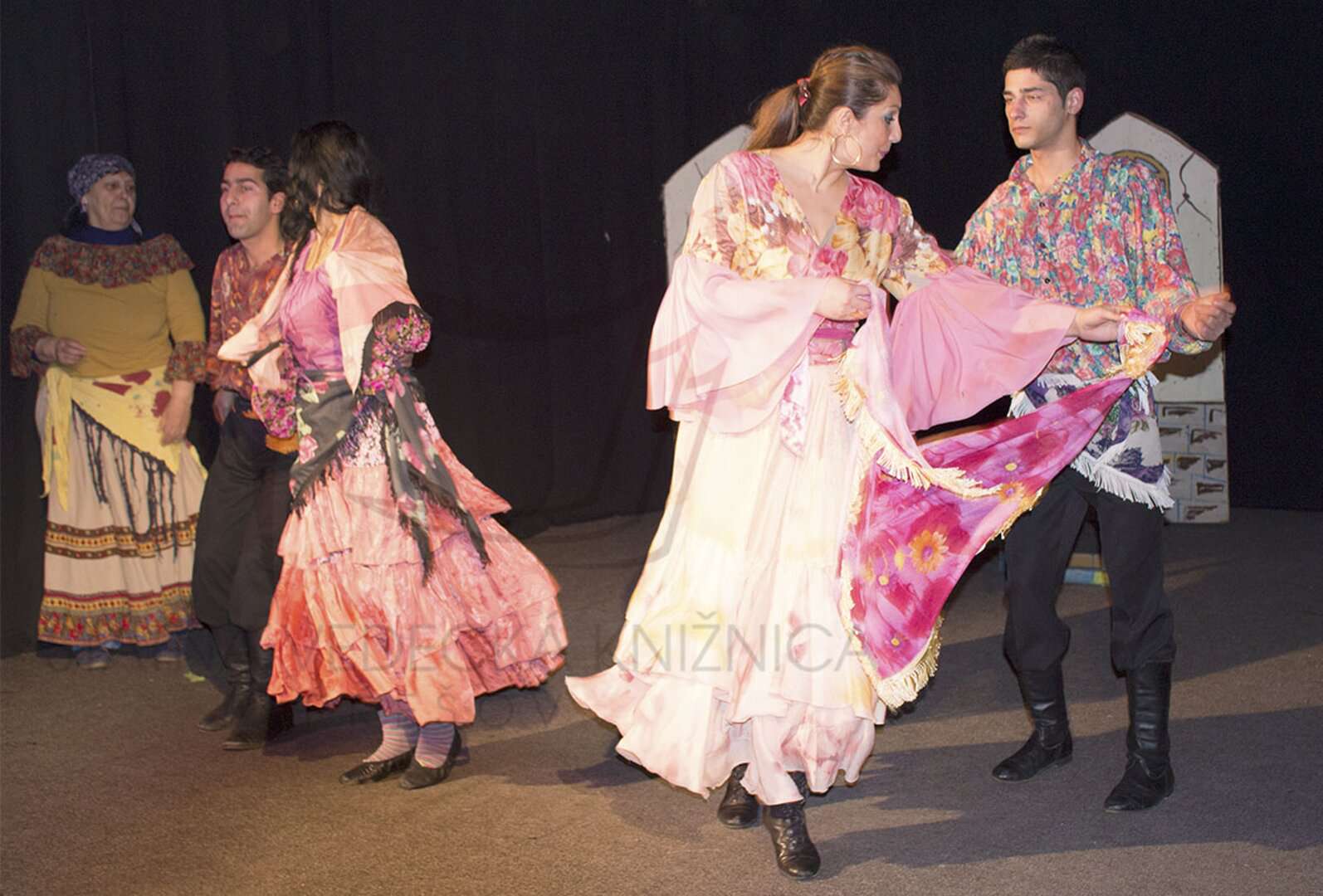The Theatre Romathan was established by the Ministry of Culture of the Slovak Republic (hereinafter ‘MCSR’) in Košice (Slovak Republic) in May 1992. Anna Koptová was appointed its director to the end of the 1997/98 season, and since the 1998/99 season its director has been Karol Adam. The theatre was established as the result of an initiative by both Roma and non-Roma intellectuals to encourage the emergence of a professional Roma theatre, which led to the presentation of a proposal by the then Member of the Slovak National Council A. Koptová at its last meeting in December 1991. Of the 102 MPs present, 53 voted in favour of the motion for the theatre’s establishment.
Until 1996, the Theatre Romathan, just like other Slovak and other minority theatres, had been under the direct control of the MCSR. Consequently, under the new structure of cultural-educational establishments under Act No. 222/1996, Book of Statutes on the Organization of Local State Administration, the theatre came under the management of the Regional Administration Authority of Košice. For the Theatre Romathan this fact meant the loss of legal personality, because, like other cultural institutions, it became part of the newly created Abov Cultural Centre in Košice. This situation was unfavourable not only in terms of any further funding for the theatre, but also for any future opportunities to fulfil its mission.
Given that the Theatre Romathan was set up as a nationwide theatre, in that same year, its management lodged a complaint with the Constitutional Court of the Slovak Republic, seeking to examine the legality of the procedure applied by Ivan Hudec, the then Minister of Culture of the Slovak Republic. In coordination with the Hungarian National Theatre, the Government Council for National Minorities was asked for assistance. However, the legal status of the theatre was confirmed, and in October 1996 its management was taken over by the Košice Regional Administration Authority.
As of 1 January 1997, the Abov Community Centre was renamed the Regional Community Centre and Theatre Romathan remained part of it. This situation, which affected all the national theatres in the country, paralysed their activities, as the financial grant for 1997 was significantly reduced. In protest, the theatre’s director Anna Koptová gave in her notice in June 1997. The State Intendant of the Regional Community Centre accepted her resignation and in the same month appointed Karol Adam director of the Theatre Romathan.
After the change of government in 1998, the theatre became a legal entity again from 1 April 1999, but it also remained subject to the managerial competence of the Regional Administration Authority in Košice. As part of the transformation of the regions since 2002, its funding and management were transferred to the responsibility of the Department of Culture of the Košice Self-Governing Region.
The situation in the theatre, which is directly dependent on its funding, is illustrated by the number of employees. At the time the theatre was set up, over 100 employees were employed, while in 2002 there were only 37 artistic workers and four technical and administrative staff.1 This situation has persisted until the present day.




